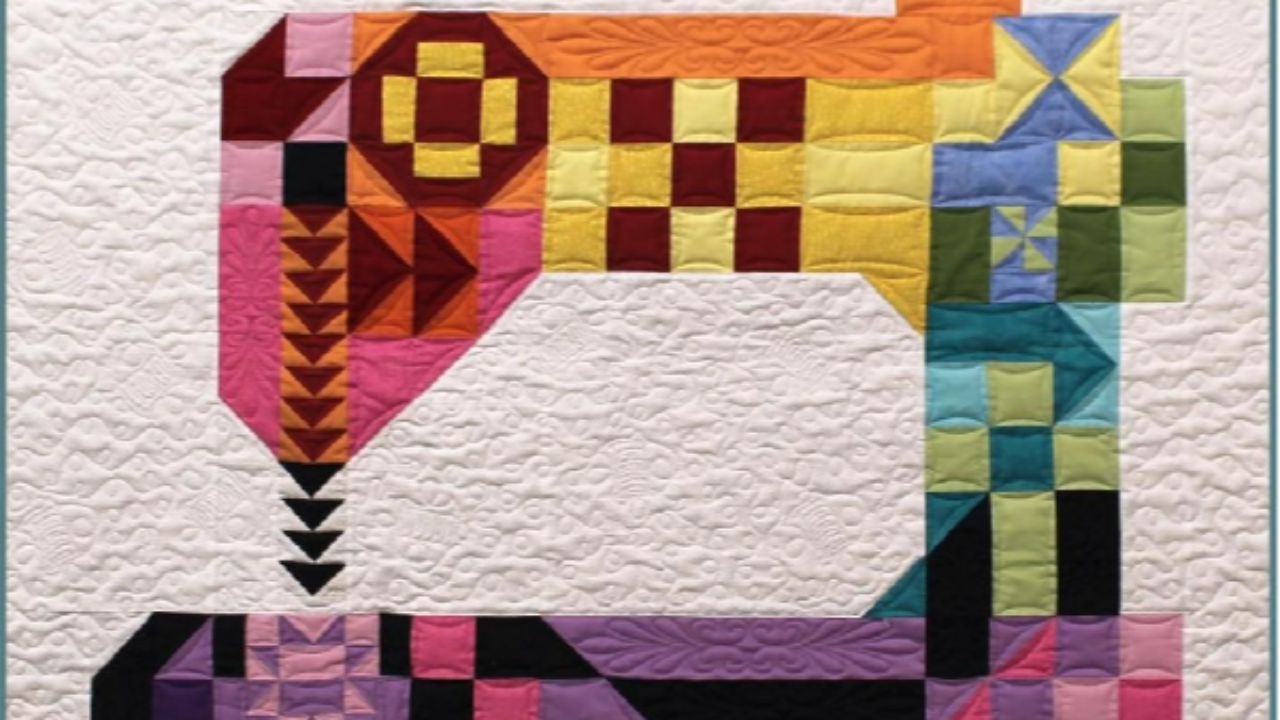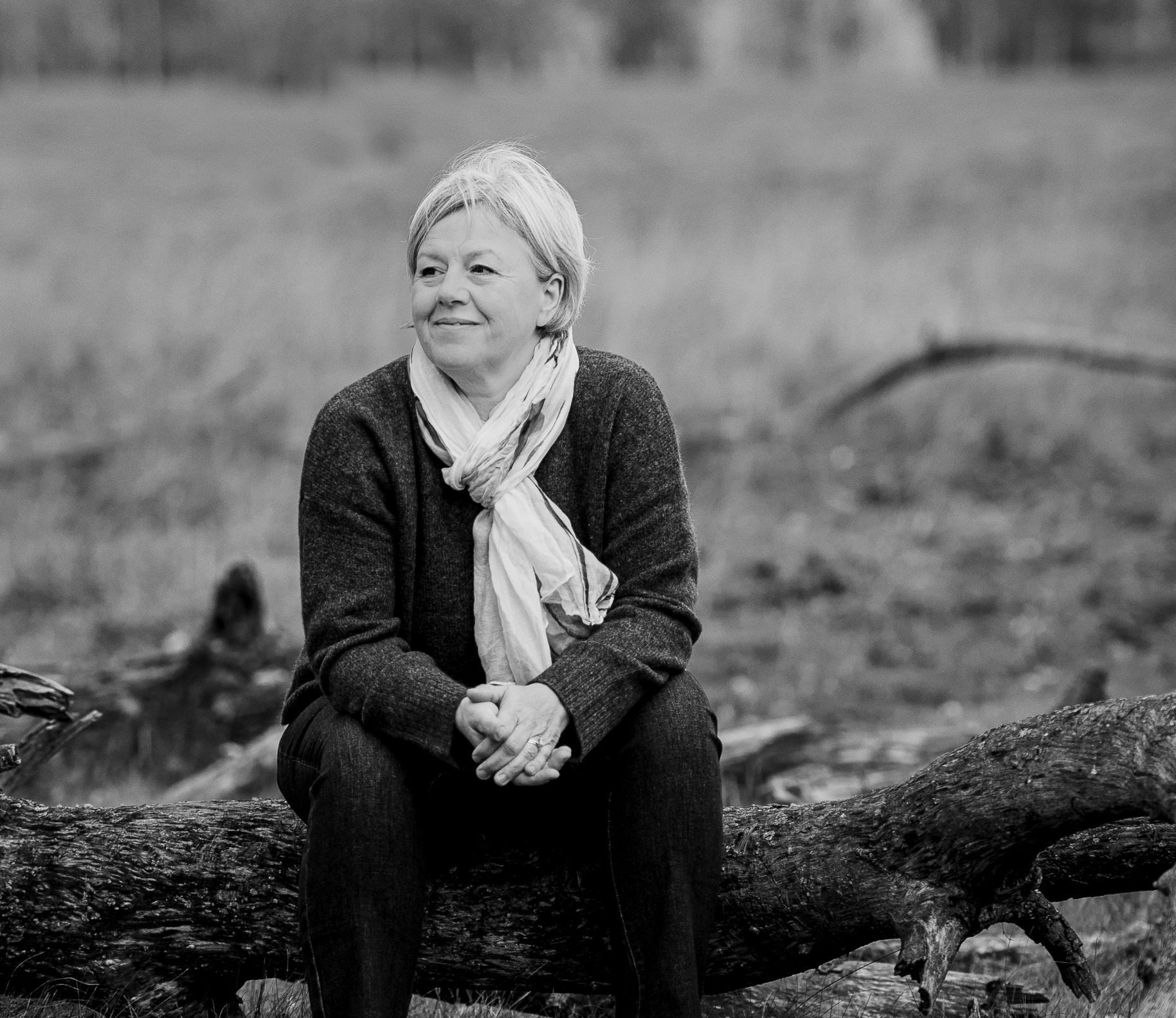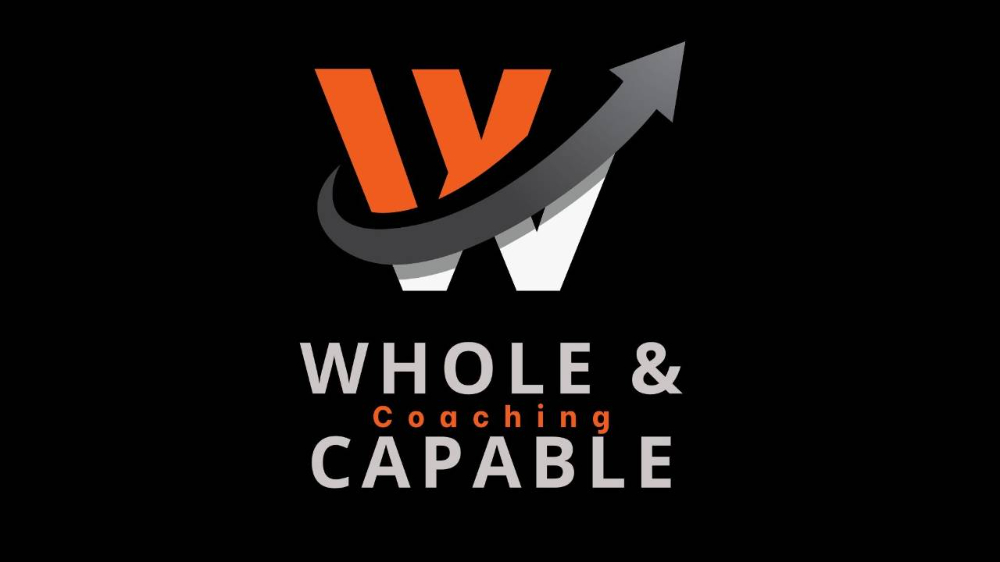Piecing Together Our Past
May 16, 2025
This morning, as the wind howls moving the icebergs on the lake I sit mesmerized by the details of the quilt top in front of me. It is made up of all the funky fabrics from my childhood clothes. The colors whisper memories of innocence and bike rides. There are polka dots from the shirt my Baba sewed me and I can still smell her dill stained hands. I found this quilt top in a pile of fabric marked for sale by my siblings. Labelled "Anastasia" on my mom's signature masking tape, the garage sale tag read $1.00. I would love to think that my childhood memories are worth far more than a dollar so I took it and now Bertha and I are going to finish this quilt. Bertha is my mom's first Bernina built for endurance and not comfort. Bertha is the name I gave this machine when I was little and I used to play under the table as my mother mended. Under the table is where I played to keep out of sight and safe. As I bring myself back to my task I notice that there is not a corner off on this entire quilt glistening traits of a perfectionist. I think about my own addiction to perfectionism and a flutter of pain fills my stomach.
My fingers slide over a patch of denim that has been mended. It is a familiar rip in a pair of jeans that I wore longer than I should have. My memory slips to a cool morning in June when all of the brownies are gathering for breakfast at our campsite. My mom is Brown Owl and she is in charge of checking to see if we are indeed presentable and ready for breakfast. She glances over the troops and releases the first two groups but when she gets to my group her eyes fix on me. I can feel her sizing me up and I remember that my jeans have a rip in them after a late night pillow fight among the brownies. Brown Owl seizes the opportunity to showcase my shameful disregard for cleanliness and in a swift undercut she sends my entire group to the back of the line and we lose our Tuck for the day. I take my place at the back of the food line dripping in shame and the understanding that I am now at the bottom of the brownie pecking order. I catch myself feeling the familiar pang of wonderment and grief. It’s hard to explain how moments like this, soaked in joy, can also bring me back to the heaviness of roles I didn’t choose—roles I should never have carried as a child.
Parentification. It’s a word that, when I first heard it, felt like someone flipping the lights on in a room I’d lived in for years without ever seeing clearly. The concept is simple, but its weight heavy: it’s when a child takes on the responsibilities of a parent, whether that’s emotionally, physically, or both. For those of us who grew up in families gripped by dysfunction—like a narcissistic parent—it’s often more than just taking care of siblings or household chores. It’s also becoming the emotional support for an adult who should have been supporting you.
As a trauma survivor turned trauma-informed coach, I’ve spent years unraveling what this means—not just academically but in the marrow of my own story. Parentification wasn’t something I signed up for; it was thrust upon me in a family dynamic where I became the scapegoat for every storm my mother stirred. As she raged and tore joy from our lives, I learned how to soothe her, how to take blame so others wouldn’t suffer, how to walk on eggshells so that peace—fragile as it was—might last just a little longer.
Every morning in the mirror I remember whispering reassurances I didn’t believe myself, because I was terrified of what might come next. I remember my father—a quiet bystander in the chaos—who turned away when my mother’s anger ripped through our home. I don’t think he knew, back then, what it meant to lose me to a role I wasn’t equipped to handle. I became the glue holding fractured pieces together, and when the cracks grew wider, I was blamed for not doing enough.
Parentification is insidious in how it steals your childhood. While other kids were learning joy, freedom, and self-expression, I was learning survival. Every decision I made was calculated to avoid the next explosion. Every moment was steeped in hyper-awareness, ready to protect or absorb the fallout from someone else’s unmet emotional needs. It wasn’t until much later that I realized the price of playing this role: the anger buried deep in me, the self-worth I couldn’t find, and the joy I never trusted because I learned to expect it to vanish.
For years, the weight of those experiences followed me. Triggers—like the smell of my mother’s perfume or the sound of Bertha humming through trousers—brought me back to that house, that silence, that scapegoat role I couldn’t escape. But as I began to heal, I started to see my triggers differently—not as proof of damage but as guideposts pointing me toward the unhealed parts of myself. I learned that the anger I felt wasn’t the enemy; it was a reminder of the injustice I endured, of the voice I lost in a childhood that was never mine.
Healing from parentification is like untangling knots in a cord that’s been pulled taut for years. It starts with recognizing the roles you played—roles that were never yours to carry—and giving yourself permission to set them down. For me, it meant forgiving myself for mistakes I made under unbearable pressure and holding accountable the people who turned a blind eye to my pain. It also meant allowing myself to feel joy in its purest form, even if it felt strange or vulnerable. Sitting here as Bertha pulls together my childhood memories—not easy, but possible.
As a coach, I work with people who carry similar scars. I see their struggle to set boundaries, their fear of trusting happiness, and their quiet, relentless bravery in facing the darkness they come from. What I tell them, and what I tell myself, is this: You are not defined by the role you played in someone else’s story. You are worthy of love that doesn’t ask you to sacrifice your identity. You are capable of living a life that feels like your own.
To those who grew up parentified, I know the road ahead feels daunting. You’ve spent so much of your life taking care of others, and the idea of caring for yourself might feel foreign. But I promise you, the work is worth it. Every step you take—toward understanding your triggers, forgiving your inner child, and embracing joy—is a step toward freedom from the weight you’ve carried for too long. You are more than the scapegoat; you are a survivor, a warrior, a beacon for others on their healing journey.
Healing won’t erase the past, but it will give you the tools to build something beautiful moving forward. And when the weight of it feels overwhelming, remember this: you don’t have to carry it alone. You can exist in moments of joy and grief at the same time without panic. In this moment, I prefer to do that in front of my fireplace wrapped in the warmth of my childhood memories with Molly at my feet. I give Molly a caress and she looks at me with her crooked grin and the scent of perfectionism lingers momentarily before it slips away.
Still wondering how I can help you change your life? Tap Here!
Anastasia Jorquera-Boschman is a retired teacher, principal and educational consultant. She spends her time now writing, speaking and holding space for her clients as a Trauma-Informed Resilience coach.

Our Newest episode of The Grit Files has dropped:
Listen to Ep. 2 ~ Shame On Me Here


